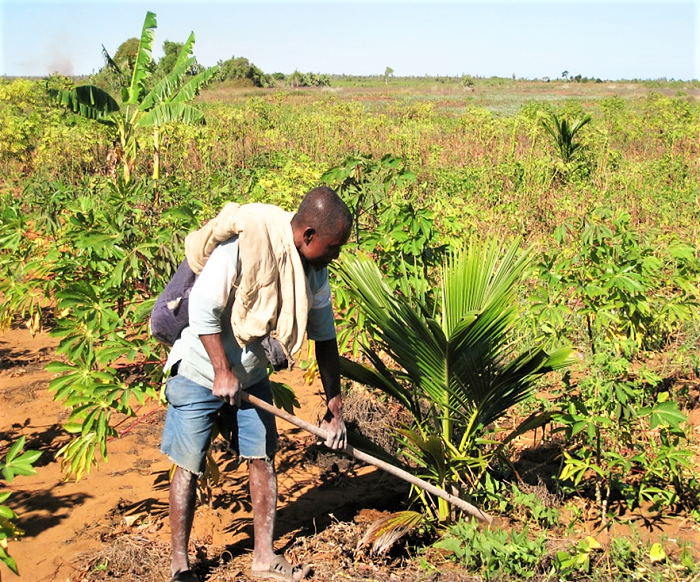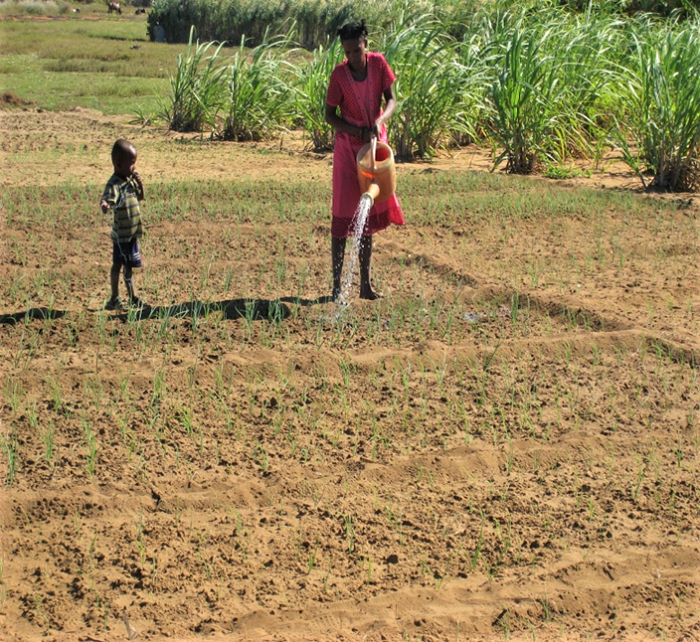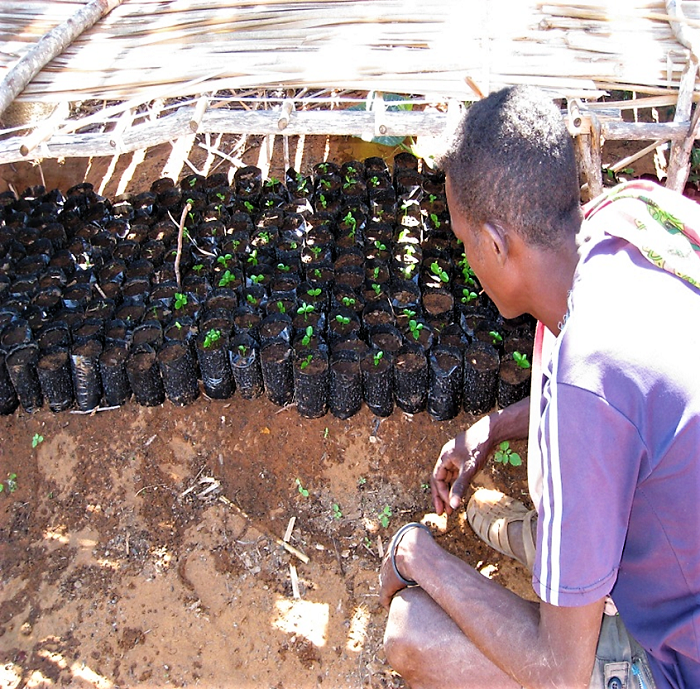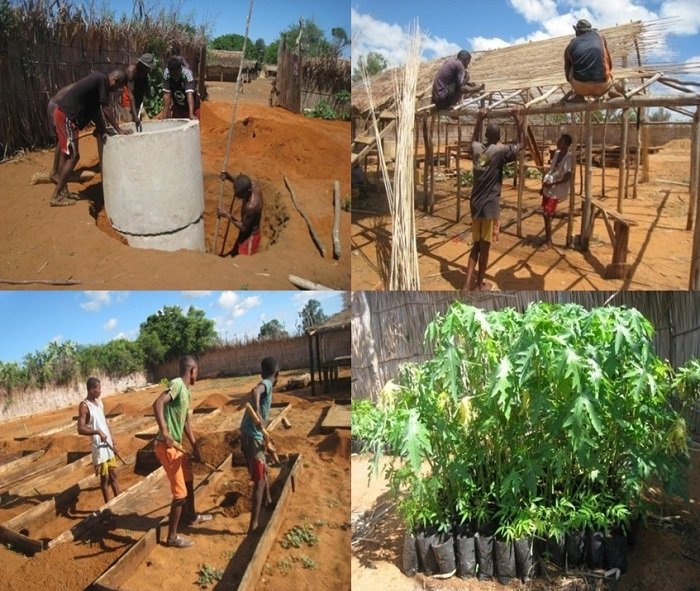Our dyanmic agroforestry project addresses food insecurity and provides sustainable livelihoods for inland communities
In 2018, with start-up funding from Naturefund, we implemented a new Dynamic AgroForestry (DAF) project in the north of the Bay of Ranobe to provide sustainable livelihoods for inland communities who are extremely vulnerable to the threats of drought, food insecurity, and deforestation, especially under climate change. DAF is a combination of agricultural cultivation and agroforestry, which has long been practised in Latin American countries. It involves the construction of natural forest-like systems with high biomass production that supply a large variety of products for humans. DAF specifically uses cutting of the plants to keep the forest system in a youthful state promoting increased biomass production. Through mimicking natural forests, these systems offer multiple benefits such as soil fertility enhancement, reduction in pest and disease pressure, erosion control, and revenue diversification.

In the initial phase of the project, we provided five participating farmers with technical start-up assistance such as practical training and the installation of nursery sites. Each farmer now owns a 40 m x 40 m plantation in which mixed fruit trees (such as orange, lemon and papaya trees) have been planted alongside native tree species including Moringa. The project expanded in 2019 with the recruitment of 15 new farmers and has since been making great progress! Fruits tree including orange, coconut palms, and banana are successfully growing in the farmer’s plots in Ranobe village. Furthermore, we have installed a nursery in which saplings are cultivated to distribute to farmers, and we have implemented a ‘market garden’ initiative. This will enable inland communities in the Bay of Ranobe to benefit from the small-scale production of fruits and vegetables as cash crops. The aim is to increase household income rates and promote food security – Madagascar’s alarming hunger levels have been recently reported to be amongst the highest in the world. To date, onion, tomato and cabbage have been planted, and the farmers have been able to pump water from shallow wells for irrigation using a motorcycle engine.


At the start of 2020, we opened a Farmer Learning Centre to help train inland communities in farming techniques including a market garden demonstration. We hope that providing communities with the tools and training to build their own market gardens will pave the way for increased food security in an increasingly challenging environment.


